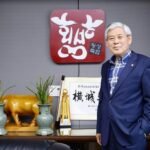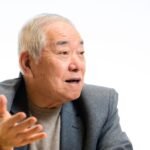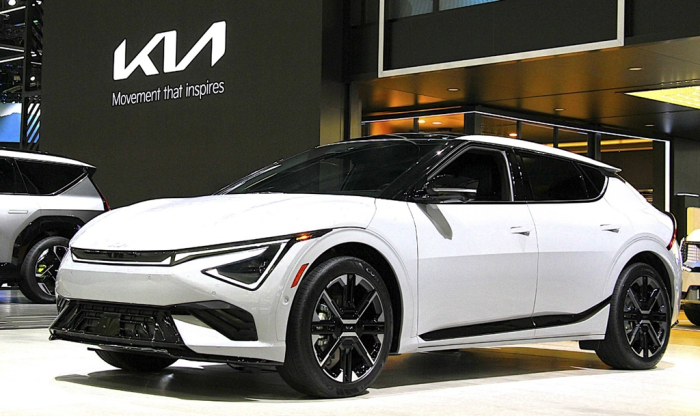
Kia Corp., South Korea’s second-largest automaker, is accelerating its transition toward electrification, unveiling plans to add new electric models and retrofit its domestic factories as global demand for battery-powered cars shows signs of recovery.
The sister firm of Korea’s top automaker Hyundai Motor Co., will begin producing a new electric vehicle, codenamed CB, at its Hwaseong Plant 2 by 2030, according to an agreement reached between management and the company’s labor union on Tuesday.
The new model, still in early development, has not yet had its size or segment finalized, sources said.
Kia also confirmed that its mid-sized purpose-built vehicle (PBV), the PV7, will be produced at Hwaseong’s EVO Plant starting in 2027.
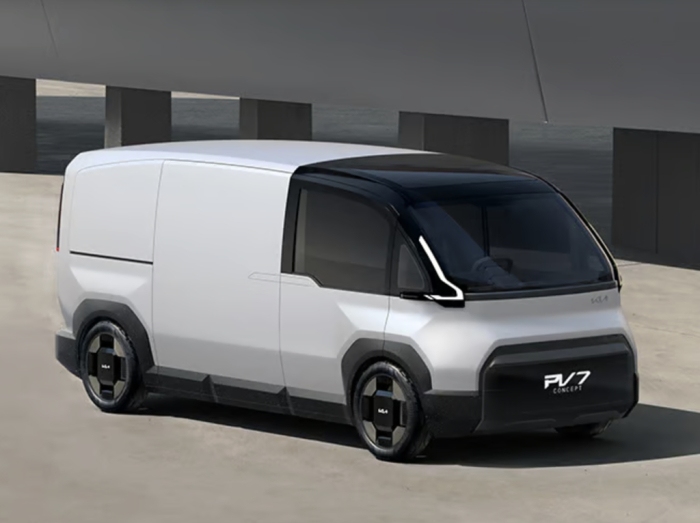
The production in Hwaseong of the PV7, at 5.9 meters long, around 70 centimeters longer than Hyundai’s Staria, is aimed at the expanding commercial EV segment.
PRODUCTION LINE ADJUSTMENTS
As part of a broader reshuffle, production of the EV6, previously split between Hwaseong Plants 2 and 3, will be consolidated at Plant 3 to streamline operations.
The Seltos compact SUV, which has been built exclusively at Gwangju Plant 1, will also be assembled at Hwaseong starting early next year when its fully redesigned second-generation model, including a hybrid version, hits the market.
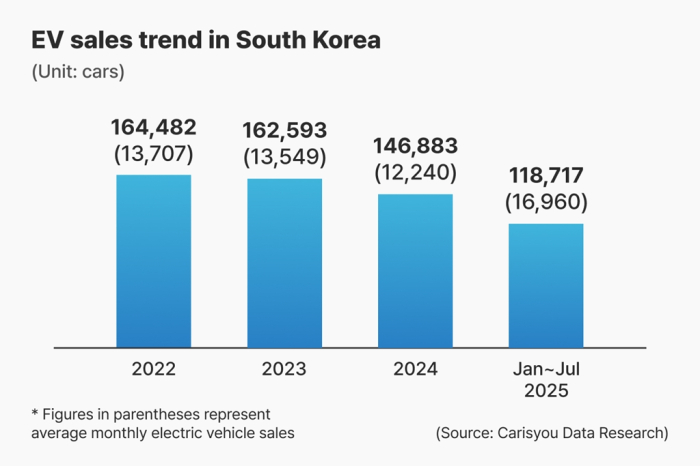
Meanwhile, Gwangju Plant 2, currently dedicated to internal combustion models of the Sportage SUV, will be converted to enable mixed production of EVs and conventional cars.
The “mixed-line” system, already used at Gwangju Plant 1 for producing both the Seltos and EV5, costs roughly one-tenth as much as building a dedicated EV plant and can be implemented within a month, giving the company flexibility to adjust output as market demand shifts, sources said.
The facility will also begin mass production of the sixth-generation Sportage in 2027.
Kia’s Gwangmyeong plant, meanwhile, plans to update its Carnival minivan lineup with the latest Theta III T-GDI powertrain.
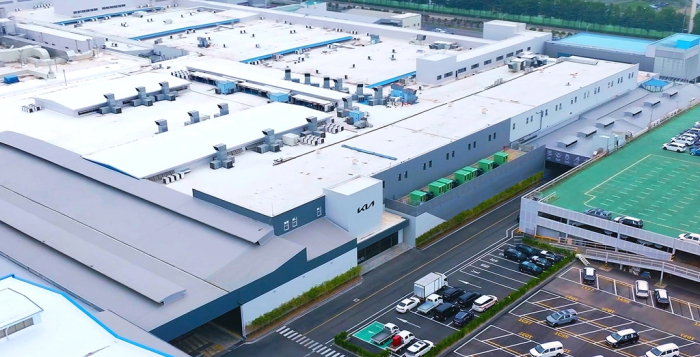
Kia and its union also agreed to pursue domestic investment in core EV components, including battery packs and power electronics (PE) modules, which integrate motors, inverters and reduction gears, once the necessary technical capabilities are in place.
The move aims to enhance supply-chain resilience amid continued global uncertainty in parts procurement.
KIA PLANS TO EXPAND OVERSEAS PRODUCTION AS EV SLOWDOWN FADES
Kia’s production overhaul comes as global electric vehicle sales regain momentum following a period of stagnation dubbed the “EV chasm.”
According to market tracker SNE Research, 12.84 million new EVs, including plug-in hybrids, were registered globally in the first eight months of the year, up 27.7% from the year-earlier period.
Growth was broad-based, with sales climbing 29% in China, the world’s top EV market, and up 32% in Europe.
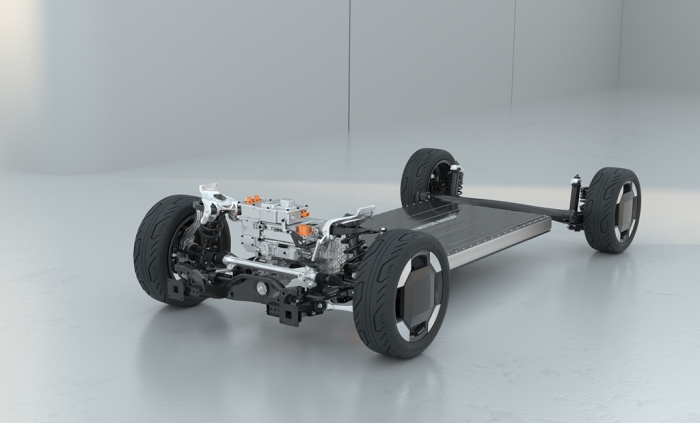
Kia’s own performance has mirrored that recovery.
The company sold 114,000 EVs globally in the first half, a 16.7% increase from a year earlier.
Its EV3 compact SUV sold 35,023 units in Europe alone, ranking sixth among the region’s top-selling electric models, behind Tesla Inc.’s Model Y and Model 3, and Volkswagen’s ID.3, ID.4 and ID.7.
To meet rising overseas demand, Kia plans to expand annual EV production in Europe to 180,000 units by 2027, including 80,000 units of the EV4 hatchback and 100,000 units of the smaller EV2.
The company began producing the EV4 at its Žilina plant in Slovakia in August – the first Hyundai Motor Group facility in Europe to manufacture vehicles based on the group’s dedicated E-GMP EV platform.
By Gil-Sung Yang
vertigo@hankyung.com
In-Soo Nam edited this article.

